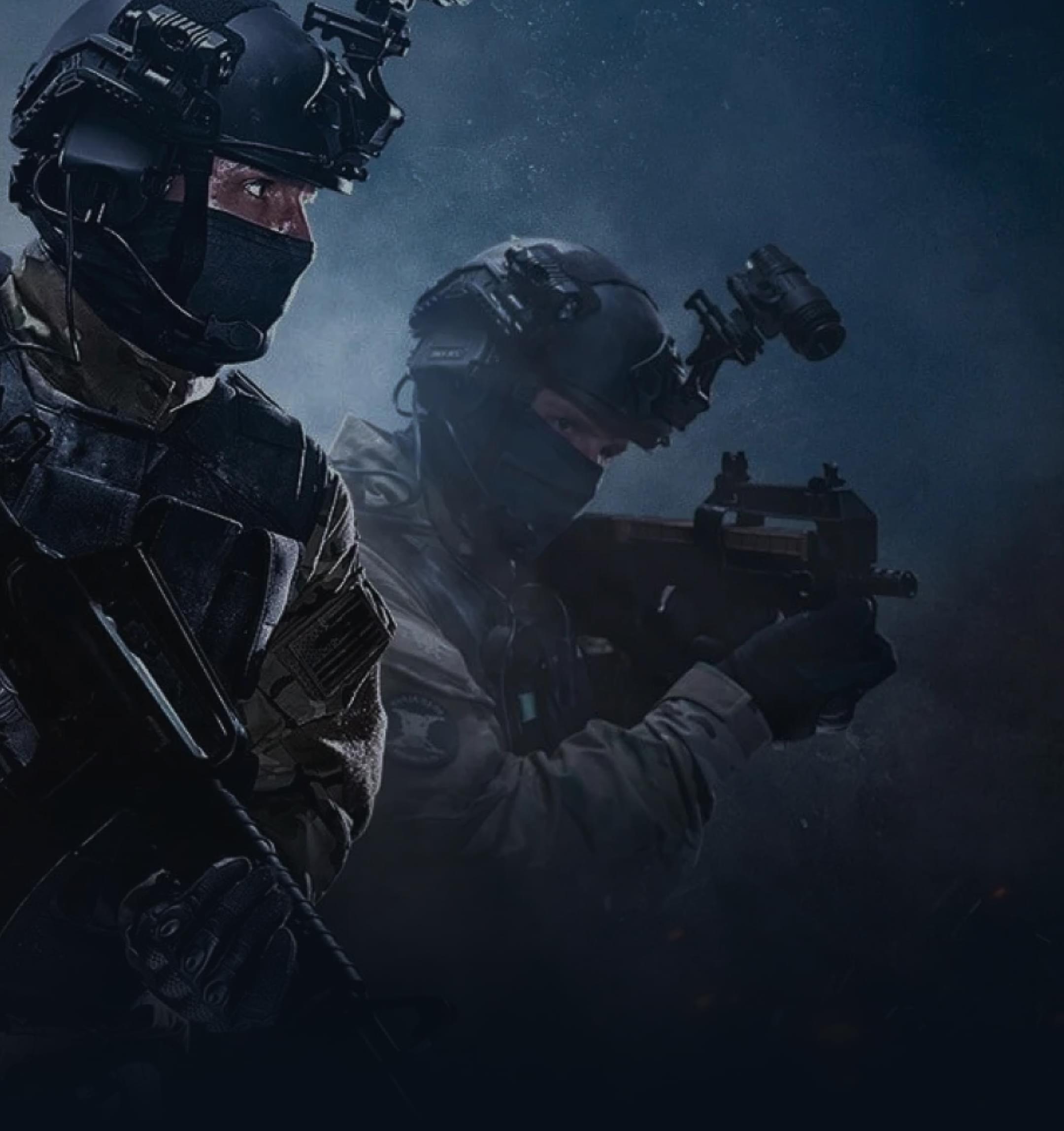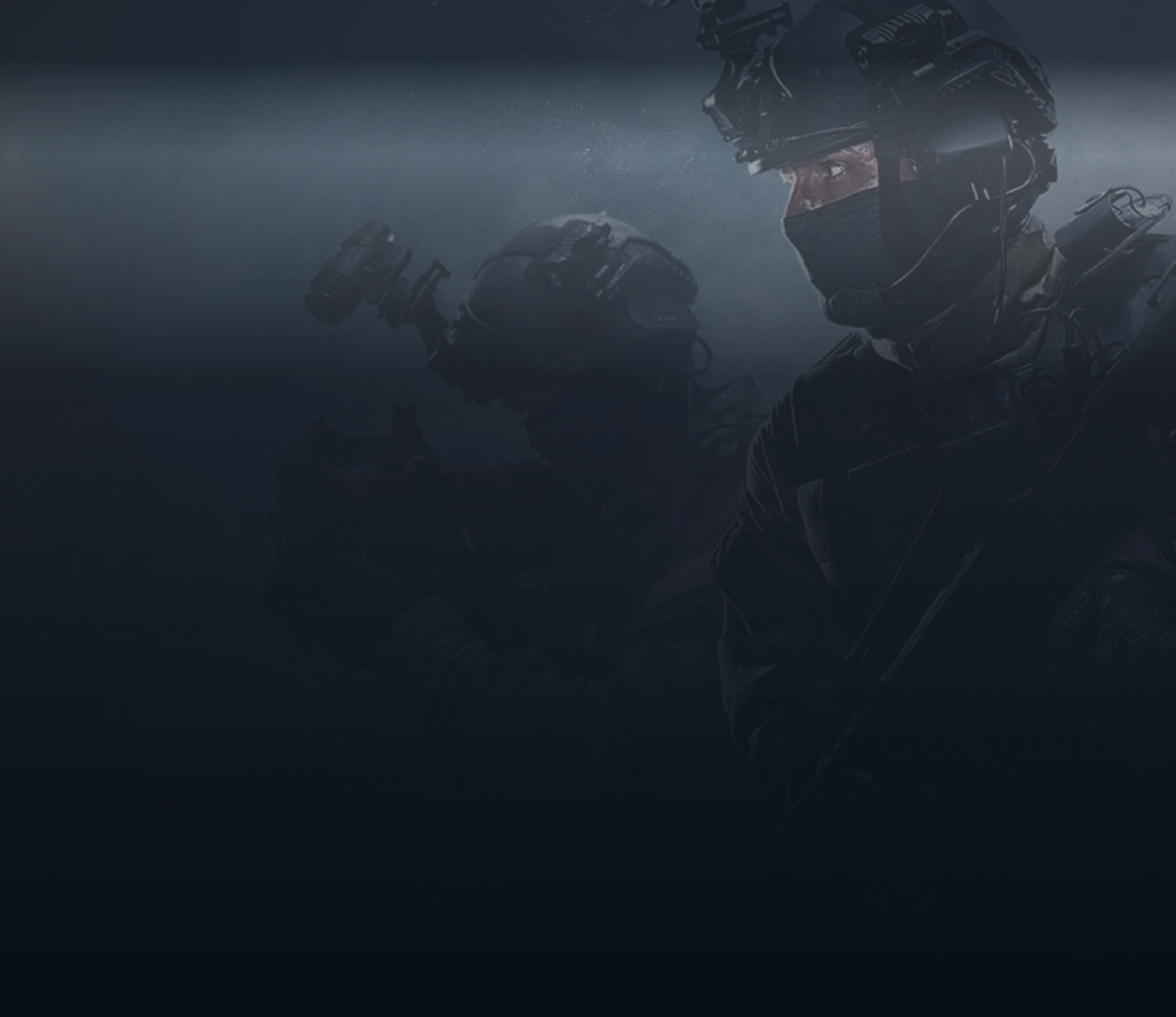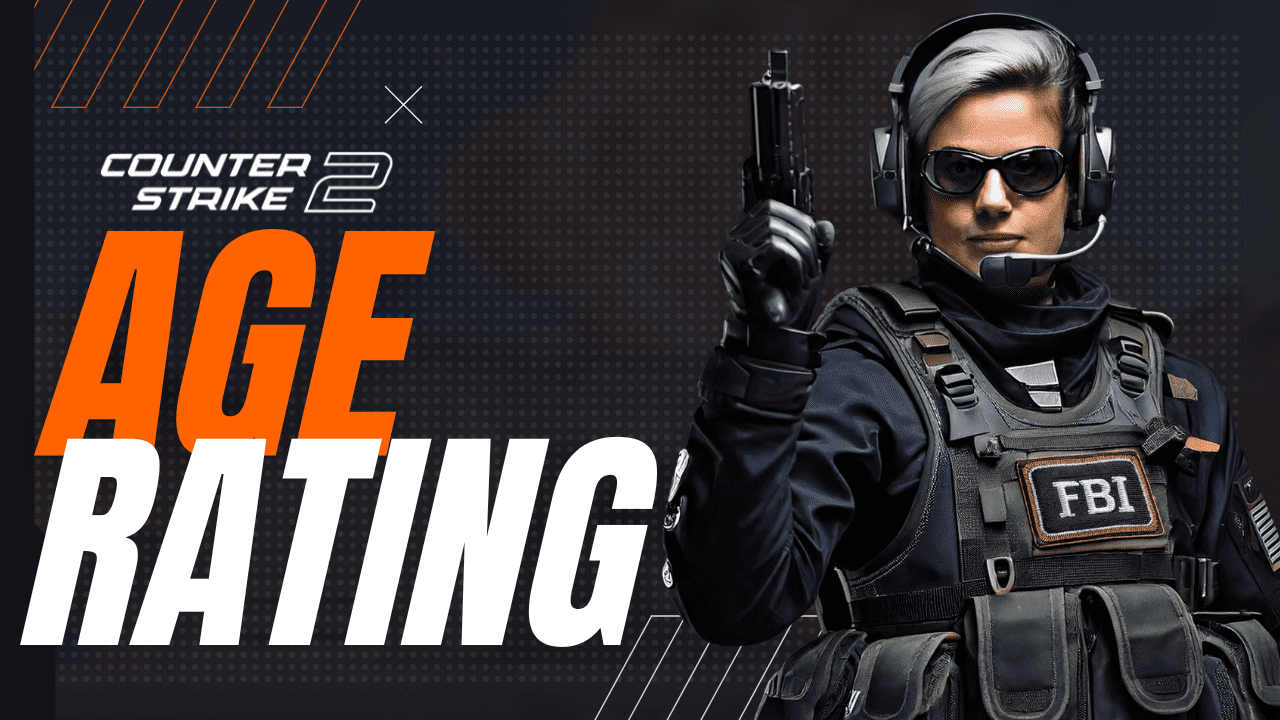CS:GO has an official PEGI (Pan European Game Information) age rating of 16, meaning it’s considered suitable for players who are aged 16 and older – mainly due to its violent and realistic content. However, it’s also essential for parents or guardians to assess whether or not it aligns with their child’s maturity and values.
About CS:GO
CS:GO, short for Counter-Strike: Global Offensive, is one of the most popular First Person Shooters developed by Valve Corporation with Hidden Path Entertainment. This is the fourth instalment in the famous Counter-Strike series of online games, hitting the market in 2012. The game is considered one of the most popular FPS games – attracting a huge player base from all around the world – ranging from amateurs to professionals. Within its dynamic gameplay, two factions—the terrorists and counter-terrorists—vie against each other across various scenarios in this timeless game.
Release Date
CS:GO was officially released on August 21, 2012.
Popularity Factors
CS:GO’s popularity stems from its gripping and strategic gameplay, offering all sorts of gaming options and creating a really fun and inclusive gaming community. The game’s continuous updates and improvements all contribute to its enduring allure – and players can always expect a fresh and exciting gaming experience.
Moreover, it is one of the most played games in the esports domain – and serves as one of the most sought-after FPS titles for competitive gamers across the globe. People are always trying to improve to climb the CS2 ranking system.
What’s the gameplay of Counter-Strike: Global Offensive (CS:GO) like?
CS:GO is a very popular first-person shooter (FPS) game where players form teams and compete online. It features diverse scenarios like bomb planting and hostage rescue. Teams comprise five players each, aiming to either eliminate the opposing team or achieve specific objectives. There are various modes, but although the objectives of every game choice vary, the fundamentals are the same. Players have to earn money by completing tasks such as eliminating opponents or defusing bombs, which they can then use to make in-game purchases – such as buying weapons and gear.
How can you increase your rank in CS:GO?
Like many other games, you can climb up the ranks – based on your skills and experience. To elevate your rank in CS:GO, you simply need to keep playing matches and do well. They take into account key factors such as kills, deaths, MVP awards, assists, damage inflicted, and successful bomb plants. By consistently performing well – and winning matches, you’ll start to climb the ranks.
Why is CS:GO Age-Rated 16? Understanding the Factors that Influence the Age Rating
Counter-Strike: Global Offensive (CS:GO), like many video games, carries an age rating of 16. This rating, assigned by various rating boards such as PEGI (Pan European Game Information), ESRB (Entertainment Software Rating Board), and others, signifies that the game is deemed suitable for players aged 16 and older. But what factors contribute to this age rating, and why is CS:GO classified as such? Let’s take a look at the main reasons behind the age rating and explore the factors that influence it.
Content Themes and Violence
One of the biggest considerations in determining the age rating of CS:GO is its content themes – particularly violence. CS:GO is a first-person shooter (FPS) game where players get involved in combat scenarios as members of opposing teams – terrorists and counter-terrorists. The gameplay basically involves using various firearms and explosives to try out and eliminate opponents, defuse bombs, or rescue hostages. There is a portrayal of violence in the game that is shown in a realistic and intense manner – and this is a significant aspect of CS:GO’s gameplay, which contributes to its age rating.
The violence depicted in CS:GO can include graphic imagery, such as blood splatters when you shoot enemies, and realistic sound effects associated with weapons. While the violence is stylized and fictionalized, it can still be pretty impactful and may not be suitable for younger audiences.
Realism and Authenticity
Another major factor that influences the age rating of CS:GO is its emphasis on realism and authenticity. Unlike some FPS games that use more exaggerated or cartoonish visuals, CS:GO offers a more realistic depiction of combat scenarios and weaponry. The game features some incredibly detailed environments, accurate weapon models, and tactical gameplay mechanics that actually simulate real-world military engagements. This commitment to realism not only makes it a very immersive experience for players but also contributes to the game’s mature content rating.
The realistic portrayal of violence and its potential consequences – such as injury and death, could potentially be upsetting or inappropriate for younger players. Therefore, the age rating takes into account the level of realism offered by CS:GO – and its potential impact on young and impressionable audiences.
Language and Communication
CS:GO is all about the team. It is an online multiplayer game that encourages communication and teamwork among players – in fact, good communication is vital. However, the game is also unmoderated – as are the online interactions and this could potentially expose players to various forms of inappropriate language, including swearing, hate speech, and all sorts of toxic behavior. While CS:GO does provide tools for muting and reporting abusive players, the potential for encountering offensive language and unpleasant communications is another consideration in determining the game’s age rating.
In addition to in-game communication, CS:GO features voice lines and character dialogue that could also contain mature language or themes. The presence of this content is another factor that contributes to the overall assessment of the game’s suitability for younger audiences and influences its age rating.
Gambling and Microtransactions
Although this is a free to play game, CS:GO has faced scrutiny and some controversy regarding its inclusion of gambling elements and the game’s microtransaction system. The game features a system of loot boxes, known as “weapon cases,” which you can either purchase or earn through gameplay. These cases contain cosmetic items such as weapon skins, stickers, and various other character accessories that you can then sell or trade on the Steam marketplace.
While the primary focus of CS:GO is on the gameplay itself and competitive multiplayer, the presence of loot boxes and virtual item trading raises concerns about potential gambling-like mechanics and how they could influence younger players. Although CS:GO does not offer direct monetary rewards or encourage real-money gambling, the presence of randomized rewards and the possibility of potentially making a profit from virtual item trading are also factors that contribute to discussions about the game’s age appropriateness.
Regulatory Guidelines and Industry Standards
Ultimately, the age rating assigned to CS:GO is influenced by regulatory guidelines and industry standards that have been established by rating boards such as PEGI and ESRB. These organizations spend time evaluating video games based on various criteria – such as those we have mentioned, like content themes, violence, language, and other factors – and then they assign age ratings accordingly. The goal of these age ratings is to basically provide guidance to anyone buying and playing the game -and to help parents make informed decisions about how suitable the games are for their children.
In the case of CS:GO, the combination of realistic violence, potentially profane language, online interactions, and potential gambling elements all work together to contribute to its age rating of 16. While the game definitely offers entertainment and competitive experiences for players of all ages, it’s definitely a game that is best suited for a mature audience that is fully capable of understanding and enjoying its themes responsibly.
Conclusion
As you can see, Counter-Strike: Global Offensive’s age rating of 16 reflects the mature content and themes present in the game – including realistic violence, mature language, and online interactions. Factors such as the war-like theme of the game, its realism, language, gambling elements, and regulatory guidelines have all influenced the assignment of age ratings by rating boards.
So, while CS:GO offers a game that many people would no doubt enjoy, its content has been deemed best suited for players aged 16 and older who can play the game responsibly. By understanding the factors that influence the age rating of CS:GO. Hopefully, both players and parents can make more informed decisions about how suitable it is for you – or your child.
What is CS:GO Rated FAQs
What is the age rating of CS:GO?
CS:GO has an age rating of 16, which indicates that it is suitable for players aged 16 and older. This rating has been assigned by various rating boards such as PEGI (Pan European Game Information) and ESRB (Entertainment Software Rating Board).
Why is CS:GO rated 16?
CS:GO’s age rating of 16 is mainly down to its depiction of realistic violence, mature language, and online interactions. The game features pretty hard-hitting combat scenarios where players have to take part in gunfights, plant bombs, and rescue hostages. The portrayal of violence, while it may look stylized and fictionalized, may not be suitable for young audiences.
What factors contribute to CS:GO’s age rating?
Several factors influence CS:GO’s age rating, including:
- Violence: CS:GO features realistic violence, including blood splatters and weapon effects.
- Realism: The game looks very authentic in its depiction of combat scenarios and weaponry.
- Language: CS:GO contains mature language and online interactions, which could potentially include profanity and toxic behavior which isn’t moderated or monitored.
- Gambling Elements: Whilst they made the game free, the presence of loot boxes and virtual item trading raises concerns about potential gambling-like mechanics.
Are there any content warnings for CS:GO?
Yes, CS:GO includes content warnings for violence, mature language, and online interactions. As such, players should always exercise discretion and act responsibly with the game’s content.
Can players under the age of 16 play CS:GO?
While CS:GO is rated for players aged 16 and older, the choice also comes down to parents. Some parents may think that their children are mature enough to engage with the game’s content responsibly, while others may think that their child might find it distressing or inappropriate. As such, before purchasing the game, a parent should consider how mature their child is and any individual sensitivities they have before allowing them to play.
How can a parent monitor and regulate their child’s gameplay?
There are a few ways in which a parent can monitor and regulate their child’s gameplay:
- Setting time limits: Limiting the amount of time they spend playing CS:GO and other video games.
- Supervising gameplay: Watching gameplay and talking about it with their child.
- Using parental controls: Use the parental control features that are available on gaming consoles and platforms that allow you to restrict their access to inappropriate games and content.
Is CS:GO appropriate for esports competition?
Yes! CS:GO is a hugely popular title in the esports scene, attracting professional players from all over the world who come together to play huge, big-money tournaments. While the game offers seriously intense competition and strategic gameplay, organizers and participants should still make sure they stick to age restrictions and tournament guidelines to make sure there is a safe and fair playing environment.
Are there any educational or positive aspects to playing CS:GO?
While CS:GO is generally for entertainment, it is a good game for players to develop strategic thinking, teamwork skills, and hand-eye coordination. Some players may also enjoy the community engagement and social interaction that is offered within the game’s online community.
What should players do if they come across inappropriate content or behavior in CS:GO?
If you do encounter inappropriate content or behavior in CS:GO, you should:
- Report the issue: Use in-game reporting tools to report any offensive language, cheating, or other violations of the rules.
- Mute or block players: You can also make use of the mute and block features available so you won’t have to interact with abusive, annoying or disruptive players.
- Get help: Contact game moderators, platform administrators, or support services who can help you to resolve any issues.
How can players and parents stay informed about CS:GO updates and developments?
Players and parents can stay informed about CS:GO updates and developments by:
- Following official channels: Follow and stay updated with official CS:GO social media accounts, websites, and forums for any announcements and news.
- Become a part of the community: Take part in discussions and take advantage of community forums to stay informed about gameplay changes, events, etc.
- Read reviews and guides: Reading is great – be it reviews, guides or news articles about the online game to stay up-to-date with what is happening in CS:GO. Make sure you only get your information from reputable sources.


